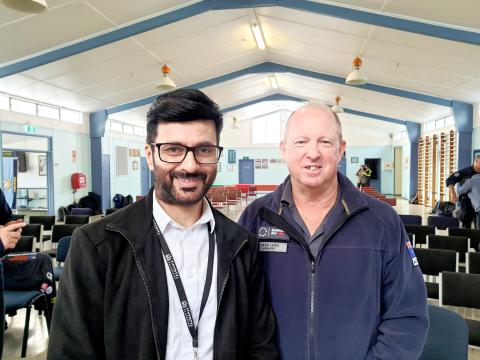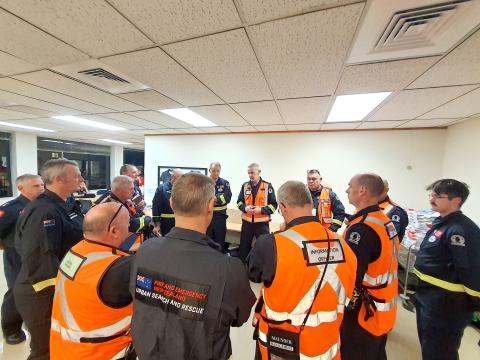


Imagine yourself in the middle of utter chaos, leading a team of over 70 experts, tasked with providing crucial humanitarian aid to a country devastated by a disaster. The landscape is one of utter destruction, with significant loss of life and assets. The air is thick with urgency and despair as emergency managers grapple with their professional duties while mourning personal losses. People are trapped beneath the rubble of collapsed structures, their chances of survival slipping away with each passing hour.
In this high-stakes environment, every second counts. You must ensure your team remains resilient and focused, be able to make critical decisions under pressure and swiftly build trust with the host country’s leadership and other international teams. Your emotions are like a whirlwind, but it's crucial to regulate them. To effectively influence and collaborate, you must also understand and navigate others' emotional landscapes. This is where I step in, bringing a transformative approach to disaster management. My name is Syed Adeel Akhtar and I am a Natural Hazards Research Australia (the Centre) sponsored PhD candidate with 16 years of extensive experience in disaster management.

As part of the Disaster Resilience Research Group at the University of Tasmania, my team and I specialise in the crucial human factors within this field. My research, Application of emotional intelligence in emergency management for improved trust building and decision making, addresses the critical role of emotional intelligence in enhancing the efficacy of Disaster Assistance Response (DART) teams. These teams, known for their rapid international deployment capabilities, comprise search, rescue, medical assistance, and HAZMAT functions. By working closely with Australia’s classified teams—AUS01 and AUS02 from Queensland Fire and Emergency Services and Fire and Rescue New South Wales (FRNSW) respectively—and NZL01 from Fire and Emergency New Zealand (FENZ), I am positioned at the forefront of a field that is not only vital for immediate disaster response but also for the long-term resilience and coordination of international humanitarian efforts.
In late May, I had the exceptional opportunity to collaborate with Fire and Emergency New Zealand during a pivotal classification exercise for their Urban Search and Rescue team. This exercise simulated an international deployment following an earthquake and involved comprehensive scenarios, including mobilisation, border crossing, establishing a base of operations, coordination with the host country, search and rescue, medical response, and demobilisation.
The data I have gathered is of immense value to our research. Earlier this year, I had the opportunity to observe a similar exercise conducted by AUS02 from FRNSW. The analysis of data from both simulations provides critical insights into the influence of emotions on decision-making and trust-building during high-stakes international deployments. This research highlights the significant impact of emotional intelligence on improving decision-making processes, fostering trust, and enhancing both intra- and inter-team cohesion, which are crucial for effective multi-agency collaboration.
During the event in New Zealand, I also networked with twelve international classifiers from around the globe and had the opportunity to present my research to the international humanitarian community. This exposure will facilitate further collaboration on our research project and enhance the potential for international adoption of our findings. I would like to extend my gratitude to Simon Haughey from FENZ for the invitation to participate in this exercise, to David Lewis from FRNSW for his invaluable mentorship of our research team, and to the Centre for the prestigious scholarship that has enabled me to elevate this research to an international level.
